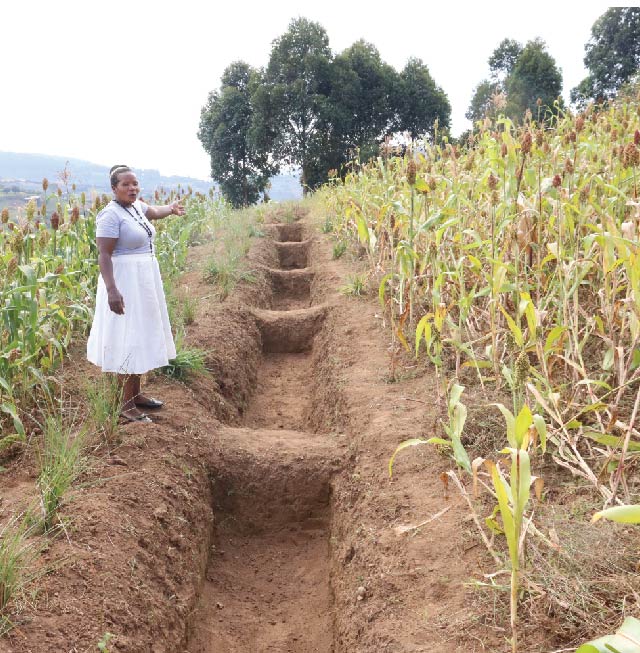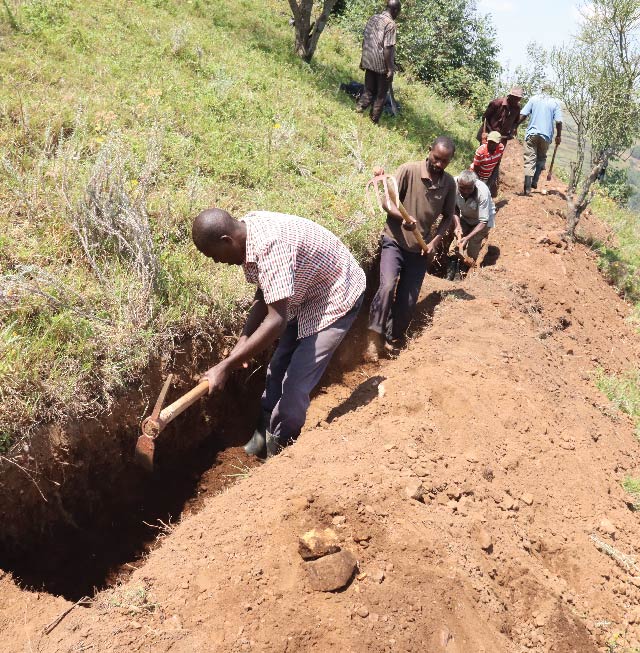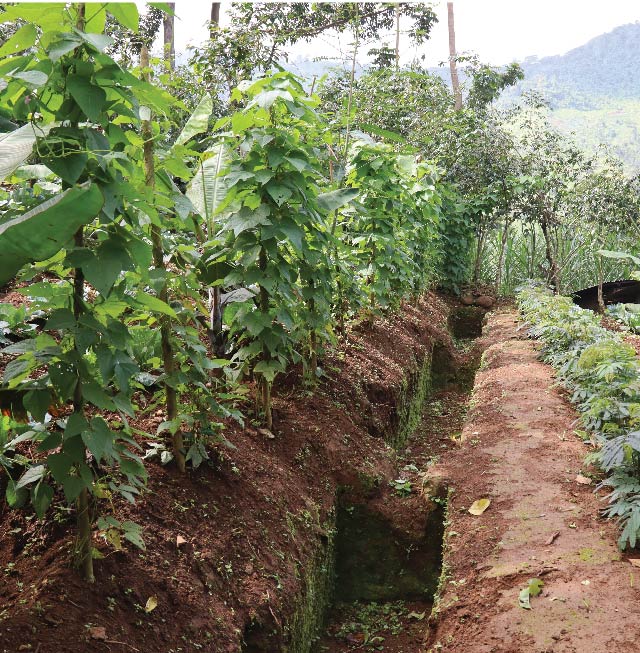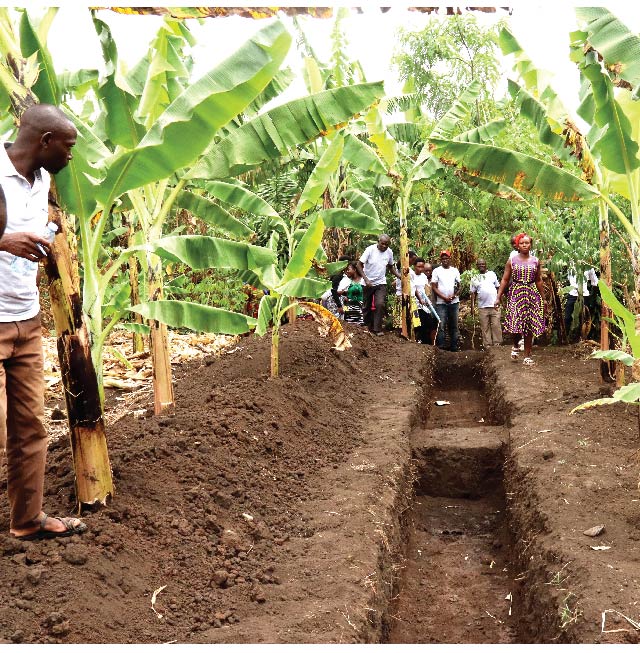Communities Begin to Dig Trenches to Manage Erosion in Their Gardens.
Kate Shabahurira is a PIP farmer from Kariko community in Kitumba sub-county Kabale district.
She is among the many PIP innovators who received training in the Participatory Integrated Planning (PIP) approach from the CommonGround project, which is being implemented by Integrated Seed and Sector Development (ISSD) Uganda and Wageningen Environmental Research (WENR) with funding from the Embassy of the Kingdom of the Netherlands the Netherlands in Kampala.
Over the years, she has been grappling with erosion due to the lack of trees and trenches in her bare plots, which has which has resulted in a decline in crop production and yields. She was no longer receiving the same produce from her small plot as she used to do many years ago.
“From all my plots of land, I would get eight to ten bags of sorghum and 30 bags of potatoes. But now at most, I harvest less than four bags of sorghum and six bags of potatoes, “she said.
The decline in yields had significantly impacted her living conditions, causing her to struggle to pay for her children's school fees and feed the family.
Like Shabahurira, in Bukara community, Bunyangabu district, Kule was grappling with heavy water runoff and erosion during the rainy season, resulting in most of her gardens being gardens being bare without topsoil.
“I did not have anyone to support me in controlling the in controlling the challenges of soil erosion and water runoff due toa lack a lack of training,” she said.
Heavy rains in Nyambigha community, Karugutu subcounty, and Ntoroko district were also causing erosion and landslides in Jerimiah Kibatsi’s cocoa plantations, leading to soil infertility and rapid a rapid decline in cocoa production.
Hellen Natukunda from Kariko Community, Muko subcounty Rubanda district, was grappling with heavy water runoff and erosion during the rainy season, causing most of her gardens to be bare. According to Natukunda, she never had the skills the skills toto control the erosion challenges.
Many highland smallholder farming communities face environmental challenges that result in in poor farming systems and, systems and hence, low productivity. The communities say all this is because they lack the skills the skills and knowledge to solve it.
To change the situation, the CommonGround Project was introduced, introduced, and through various farming system trainings, the communities have started establishing trenches and planting grass along the slopes to control erosion.
Rogers Mfitumukiza, Farming Systems Expert for the Project, Project, says that using the PIP the PIP approach. Emphasis was placed on the importance of collaboration between farmers and rural communities.
He adds that through Module 1 of the PIP approach, various participatory sessions in communities with the aim of raising awareness about the various environmental issues and their effects on the quality of life in the community were held.
“Throughout the trainings, emphasis was also put on activities related to soil restoration and conservation, as a healthy soil is the foundation of all other agricultural activities, “he explains.
Shabahurira was among those who received AGRITECH training from the project staff, and today she has trenches and grass bands in all her plots of land. She revealed that after establishing the trenches, erosion in her garden has stopped, and she sees her crops looking better than before.
Because of the awareness meetings, Kibatsi realised that the only solution to managing erosion and water runoff was digging trenches on the cocoa farm. With the project the project staff's guidance, he started digging trenches in his plantation, and since then, He has been reducing water runoff and planting fruit trees on his land.
According to Natukunda, another PIP farmer who was grappling with the challenges of erosion due to the lack the lack of trenches in her garden, during the various awareness meetings, they were trained to do things themselves without expecting any external support. SheShe decided to solve the problem that was affecting her garden, and that was erosion.
“With support from other community members (PIP innovators), I started digging trenches in all my plots of land with guidance from the project field staff. And on each completed trench, I plant elephant grass along the way. along the way. I was told the grass will keep the soil from being eroded in the trench, “she said.
Another PIP innovator from the Bukara Community in the Bunyangabu district, Wiliam Kasaija, is all full of praise for the CommonGround trainings. He revealed that he used an A frame to aid him with digging standard trenches in each of his gardens.
He disclosed that he is currently experiencing favourable outcomes, as water runoff was previously a significant issue in his garden but has been stopped.
"At first, I did not think the training would be beneficial because so many projects had already begun and their methods had nothing to do with land restoration,” he said.
However, after going to several AGRITECH trainings facilitated by CommonGround staff, I understood that the PIP approach is unique. It encourages people to work on their own but also emphasises environmental conservation,” he explains.
By Andrew Masinde – Communications Officer





